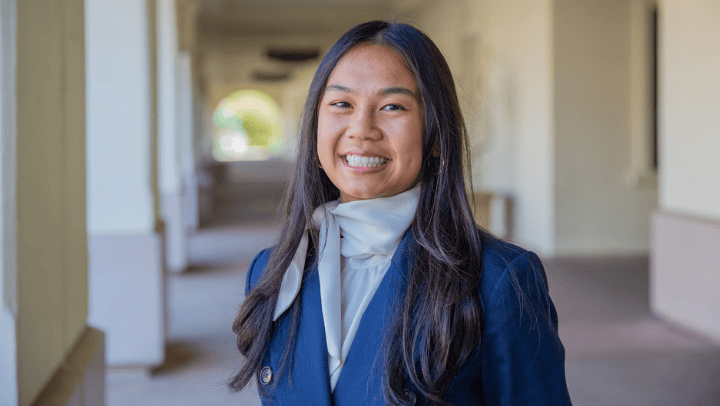Making History
Daniel Walker not only studied history, he also changed the course of it in the entertainment industry.

This story is featured in the spring 2019 issue of 360:The Magazine of San Diego State University.
After co-directing a political campaign (U.S. Rep. Juan Vargas’s first for San Diego City Council), tackling urban development in New York City and earning three degrees, including a Ph.D. in history, Daniel Walker (’90) decided to start over. That’s when his life became really interesting.
Walker gave up a tenured faculty position and took on a bold creative project that reconnected him with San Diego State University. It also placed him squarely in the national spotlight as a champion of art and filmmaking created by and about women and people of color.
“Looking over (my) life story, it now looks like it makes sense but I was scared everywhere,” Walker admitted in a video made for Claremont Graduate University, where he was the commencement speaker and an honorary doctoral degree recipient last June.
Student activism was on the rise again when Walker came to SDSU as an undergraduate. He embraced the campus climate, becoming president of Associated Students and cofounding the nonprofit Leadership Excellence with close friend, Shawn Ginwright (’89, ’93).. They enlisted fellow students as volunteer tutors with the goal of increasing college matriculation rates among students of color.
A year after Walker graduated, SDSU academic counselor Wanda Clay Majors tracked him down. She urged him to apply for three prestigious national fellowships. He received all three and chose the Urban Fellows program in New York City. In subsequent years, Walker held a Kellogg Foundation Fellowship, led Habitat for Humanity in California and Mexico, earned his Ph.D., and joined the faculty at Indiana University. But teaching alone couldn’t satisfy his creative impulse.
In 2009, he returned to SDSU and worked with the Department of Africana Studies to unearth film and videotape featuring the artistry of Danny Scarborough, a professor and founder of the Black Repertory Total Theatrical Experience.
Scarborough wrote, directed and choreographed dramatic dance performances reflecting the totality of the black experience. His troupe—comprising mostly SDSU students—won an Emmy Award in 1978 for a production inspired by the central character in Alex Haley’s “Roots.” Scarborough was among the first high profile Americans to go public with his diagnosis of AIDS. He died the year before Walker’s graduation.
“If anyone, he was my model for life,” said Walker. “He was the most energetic, innovative, insightful wellspring of art and culture that any of us has ever met.”
“When Roosters Crow,” Walker’s tribute to Scarborough, received a nomination for Best Short Film at the 2014 San Diego Black Film Festival. In his attempt to take the film to a wider audience, Walker ran headlong into the obstacles facing underrepresented artists with big ambitions. His solution: devise a showcase for creators of diverse content to connect and preview their work. Walker’s Long Beach Indie International Film & Entertainment Festival opens for a sixth season this summer.
“The Long Beach Indie helped to change the narrative about the entertainment industry's obligation to mirror the world we actually live in," said Walker. "That world includes women and men, gay and straight, and people of all colors and nationalities."
Walker’s ventures have changed the narrative in other spheres too. In an effort to nurture a college-going culture in California’s Inland Empire, he and his sister, Dina Walker, founded the BLU Educational Foundation. He has led educational initiatives about the Underground Railroad, emphasizing the partnership between “conductors” of all races and nationalities.
As a research associate at the University of Southern California’s Center for Religion and Civic Culture, Walker founded a digital archive of Gospel music and directed a major portion of a second archive centered on global Pentecostalism.
Recently, he ventured into television, producing an episode for KCET’s ArtBound, which traces how social change and the vibrant music scene in 1960s Los Angeles set the stage for the election of Tom Bradley, the city’s first African American mayor, and the recording of Aretha Franklin’s seminal “Amazing Grace” album.
“My mantra in life is ‘We Are One,’” said Walker. “I do push people to have tough conversations, but the end result is the optimism I carry—that we can and should be working together to make progressive change.”



